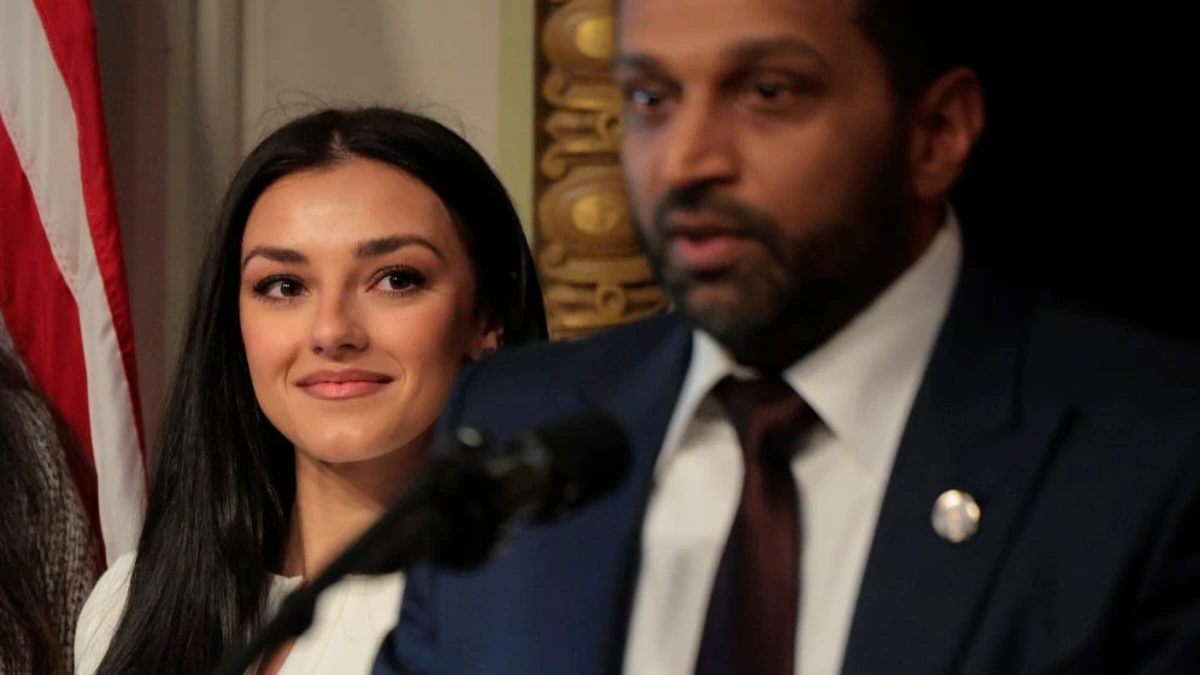WASHINGTON — FBI Director Kash Patel is under scrutiny after ordering a SWAT team to provide security for his girlfriend, a rising country singer, during her performance at a National Rifle Association convention in Atlanta earlier this year.
The unusual deployment, paired with Patel’s frequent use of government resources during his first months leading the bureau, has raised concerns among current and former officials about whether the actions fall outside accepted protocol.
Six people familiar with the incident said Patel directed two members of the FBI’s specialized tactical unit to accompany his girlfriend, Alexis Wilkins, during her appearance at the Georgia World Congress Center.
The agents departed before the event concluded after determining the venue was already secure, prompting Patel to reprimand their commander for what he viewed as a lapse in protecting Wilkins.
The episode has become a central part of growing internal discussions about the director’s conduct, with some senior officials privately questioning whether his decisions align with established standards.
The focus on Patel under scrutiny intensified following additional reports that he used a government aircraft for a personal golf trip to Scotland with friends during the summer.
While FBI directors are required to fly on bureau aircraft for official travel due to secure communication needs, recreation based flights require detailed justification and advance planning.
Current and former officials said security coverage for Wilkins has expanded significantly since Patel took office, with bureau resources deployed at several public events she attended.
Some conservative commentators who typically support Patel’s efforts to overhaul the FBI have also voiced concerns.
“Is she considered Kash’s spouse?” conservative influencer Grace Chong asked on X in a post questioning the use of government protection for the singer. “If not then why are taxpayers funding this?”
Patel has said privately that Wilkins, who has received online threats, could be targeted at public appearances. But several law enforcement officials familiar with bureau protocols said protections for non spouses are highly unusual and typically require clear evidence of risk.
National security experts note that the FBI director receives wide latitude in security decisions, but the authority is not unlimited.
“Directors can request additional protection in exceptional circumstances, but the threshold is high and typically tied to specific intelligence,” said Mark Ellison, a former Homeland Security official.
“Using tactical units for personal matters raises significant questions.” Other analysts say the issue reflects broader concerns about boundaries between public duties and private life.
“When you see Patel under scrutiny for these kinds of actions, it’s not just about one incident,” said Karen Doyle, a political ethics researcher at Georgetown University. “It signals a potential pattern that requires oversight.”
Doyle added that the use of specialized units like SWAT teams should be reserved for critical situations, not routine appearances by public figures’ partners.
“Every time a tactical response team is deployed unnecessarily, it risks pulling resources from communities that may actually need them,” she said.
Protection details for cabinet-level officials and their families vary widely across agencies. According to former federal security managers:
Non spouse partners typically do not receive automatic security protection. The FBI rarely assigns SWAT or Hostage Rescue Team personnel to non operational events.
Comparable agencies, such as the Secret Service, only extend protection to spouses, minor children, or individuals under specific threat assessments.
In fiscal year 2023, the federal government spent roughly $45 million on protective travel across major agencies. Experts say even a small increase in unapproved use can strain already limited budgets.
By contrast, previous FBI directors including James Comey and Christopher Wray limited personal use of government jets mainly to necessary travel from their home states or urgent official matters.
Leisure trips, particularly abroad, typically required explicit DOJ approval. Inside the FBI, reactions to the incident have been mixed as word of the SWAT deployment spread across field offices.
A senior agent in the Southeast, who requested anonymity because they were not authorized to speak publicly, said morale took a hit. “We already operate with tight staffing. When you see a director using us for something that looks personal, it sends the wrong message.”
In Atlanta, law enforcement officials who worked the NRA convention said they noticed Wilkins’s brief security detail but found the setup puzzling.
“It was already a secure venue,” said an Atlanta police official involved in event planning. “There was no known threat that justified that level of federal involvement.”
Fans who attended the convention were divided. Rebecca Shields, a Tennessee attendee, said she understood Patel’s fears. “If someone you love gets threats, of course you’re going to protect them,” she said.
But another attendee, Jack Morton of Alabama, felt differently. “I respect the director, but taxpayers shouldn’t foot the bill for his girlfriend’s security. That’s not how the system is supposed to work.”
The Justice Department is not conducting a formal inquiry, but officials said discussions about tightening internal protocols are underway, particularly regarding personal travel and non spouse protection.
Congressional staff on both sides have also requested briefings, according to two people familiar with the matter, signaling the issue could escalate in coming weeks. Ethics experts said more transparency is needed.
If concerns continue to mount and Patel under scrutiny remains a recurring theme, lawmakers could push for stronger guidelines governing the use of government aircraft and federal security resources.
The questions surrounding the director’s decisions reflect a broader debate over the boundaries of federal authority and personal privilege.
As critiques build and Patel under scrutiny continues to attract attention, the administration faces pressure to clarify how far senior officials can go when using government resources.
Whether the controversy leads to formal review or quiet internal reform, experts say it highlights the need for clearer rules in an increasingly scrutinized federal landscape.
